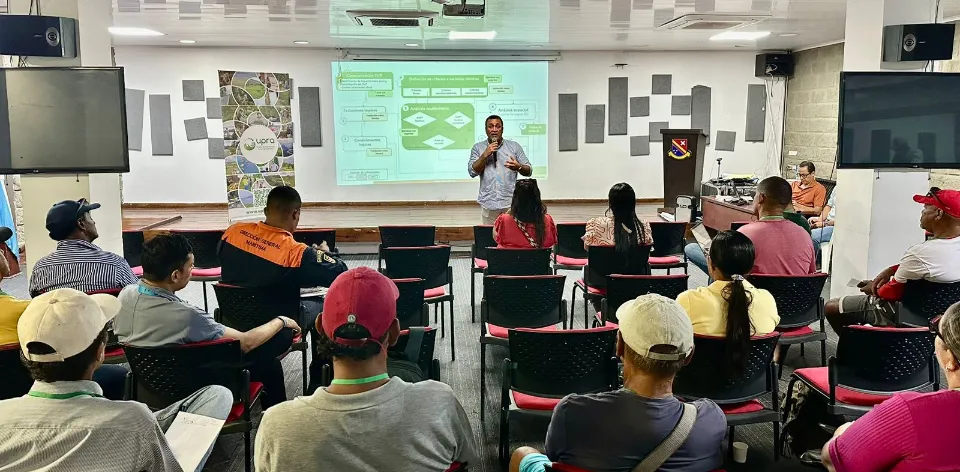 26/6/2024
26/6/2024
Advancing Marine Artisanal Fishing Zoning to Boost Agro-Food Potential in the Archipelago of San Andrés, Providencia, and Santa Catalina

This technical session aligns with the commitment of MinAgricultura, UPRA, AUNAP, and the Government of the Archipelago of San Andrés, Providencia, and Santa Catalina to advance territorial planning around water.
Bogotá D. C., (@Minagricultura, @UPRAColombia, @claudialili76). In the Archipelago of San Andrés, Providencia, and Santa Catalina, a session of socialization, dialogue, and collaboration was held between entities, associations, and fishing representatives to carry out the zoning of marine artisanal fishing to strengthen the country's maritime and food security.
Claudia Liliana Cortés, General Director of the Agricultural and Rural Planning Unit (UPRA), highlighted the importance of having this instrument, as it allows municipalities and departments to formulate their local development plans. It also helps fishermen identify optimal areas for their activities, promoting more sustainable and efficient use.
Representatives of associations and artisanal fishermen, the Secretariat of Agriculture and Fisheries of the Government of San Andrés, Providencia, and Santa Catalina, the National Aquaculture and Fisheries Authority (AUNAP), the National Association of Peasant Users of Colombia (ANUC), the Corporation for the Sustainable Development of the Archipelago of San Andrés, Providencia, and Santa Catalina (Coralina), and the General Maritime Directorate (Dimar) attended the session.
Renato Baldovino Guevara, an UPRA official, stated that "this first session aims to identify types of marine and artisanal fishing activities, the potential areas where fishermen can sustainably exploit species such as queen conch, lobster, red snapper, barracuda, yellowfin tuna (bonito), among others. Additionally, the session includes tasks such as:
- Baseline data collection
- Information consultation and knowledge exchange
- Preliminary criteria and variables for marine artisanal fishing
- Environmental and fishing determinants."
Regarding artisanal fishing, Nataly Maria Taylor Elguedo, fishing coordinator of Providencia, noted that "this activity is very valuable as it has been carried out for generations; young people, adults, and the elderly engage in it. Therefore, it is quite important to involve them in such institutional exercises."
Antonio Rojas, a specialist from AUNAP, indicated that "a detailed work of this level on fishing zones, distribution, and species has never been done before. It is important to continue this collaboration between UPRA and AUNAP to jointly build the required public policy."
David Hotson, from the Corporation for the Sustainable Development of the Archipelago of San Andrés, Providencia, and Santa Catalina (Coralina), associations, and fishermen, praised this approach that allows the construction of these instruments with the communities, who possess valuable information about current issues on the island such as illegal fishing, overfishing, and climate impacts.
The workshop was conducted in two sessions. During the first session, the generalities of zoning and the potential of marine coastal artisanal fishing in Colombia were addressed, along with background and progress. In the second session, the technical team applied a methodology to identify determinants, analyze, and prioritize work areas in the Colombian Caribbean islands.

